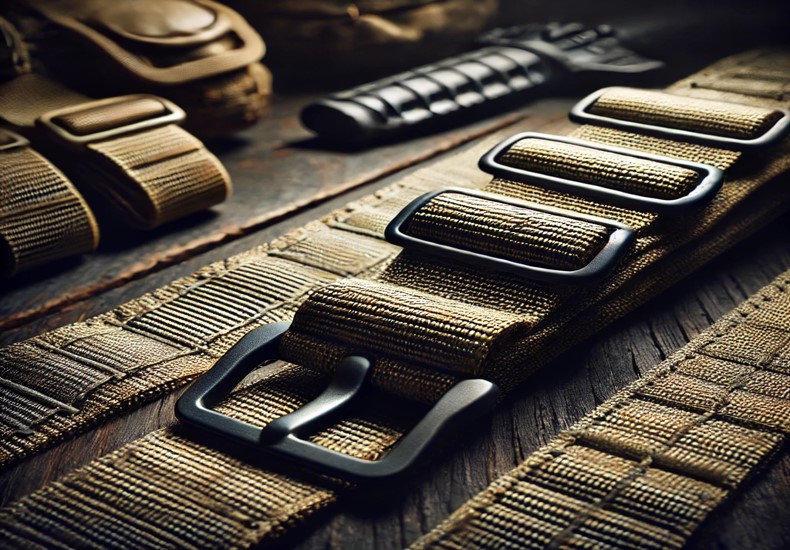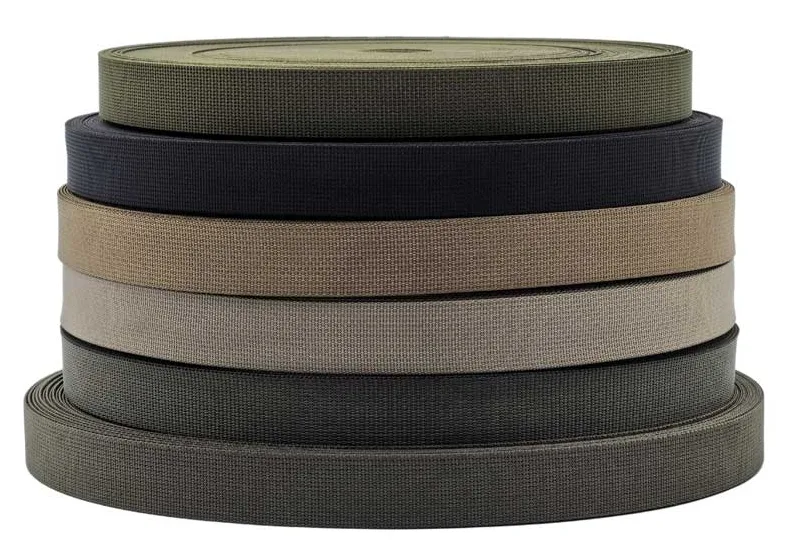
Webbing straps are a crucial component of military gear, adding strength, durability, and reliability in extreme conditions. Whether used to secure equipment, create load-bearing systems, or protect personnel in extreme environments, high-strength webbing straps can significantly improve performance and efficiency.
In selecting military webbing straps, a number of factors are taken into consideration in their effectiveness and durability. These are:
Material Composition: The most durable webbing straps are typically made of high-strength nylon, polyester, or aramid (Kevlar) with differing levels of strength and performance in their durability and capability. Nylon is strong but flexible, polyester has additional shrinking and stretching resistance, and Kevlar has decent heat resistance and high tensile strength.
Strength and Weave: Military webbing straps are woven densely, thereby possessing higher load-carrying capacity and abrasion resistance. Heavy-duty straps are thick enough to withstand high tension and weight without rupturing or fraying.
Load Capacity and Tensile Strength: Webbing straps with high tensile strength are usually rated to withstand over 2,000 pounds of load. This makes them capable of keeping gear, weapons, and other equipment tightly in position while in combat or survival status in the wild.
Resistance to Environmental Factors: Military webbing straps must be capable of withstanding extreme heat, humidity, and direct sunlight exposure. Most good-quality webbing straps are coated or treated for additional resistance to mildew, rot, and UV sunlight exposure.
Mil-Spec Nylon Webbing: It is the most reliable material for military applications with enhanced strength, elasticity, and abrasion resistance. The webbing is used in the majority of tactical belts, rucksacks, and load-bearing harnesses. It is available in various widths such as 1-inch, 1.5-inch, and 2-inch, and can be tailored easily as needed.
Heavy-Duty Polyester Webbing: Polyester webbing is the first choice when low stretch and increased UV resistance are needed. It is utilized in the majority of cargo straps, parachute harnesses, and mil-spec tie-downs. Polyester webbing will not deform under tension and has improved mildew resistance.
Kevlar-Reinforced Webbing: If higher strength and heat resistance are needed, Kevlar-reinforced webbing is ideal. Kevlar fibers rigidify the strap to allow its utilization in fire resistance and heavy military uses. It has its uses primarily in harnesses, holsters, and rescue operations where high tensile strength is essential.
Tubular Webbing: This webbing is increasingly gaining popularity with climbing and military rescue missions since it is elastic and strong. It is woven in a tubular form, and this assists in providing strength and bearing sudden shock. It is highly recommended for rappelling, load-bearing vests, and securing heavy equipment.

In selecting the best military webbing strap, consider the intended application. For general load carrying and tactical equipment, Mil-Spec nylon webbing is ideal. For where UV resistance and minimal stretch are required, polyester webbing is preferable. When ultimate durability for rescue or fire-resistant applications is required, Kevlar-reinforced or tubular webbing is ideal.
Additionally, always look for military-grade certification to be assured of getting original, high-quality webbing. A properly selected webbing strap not only adds efficiency but also provides safety and reliability in the field. For military deployment, outdoor expeditions, or tactical utilization, the best military webbing straps will give long-term performance and peace of mind. Xuli Textile offers an extensive variety of high-quality military webbing straps, renowned for their strength, durability, and compliance with rigorous quality specifications.